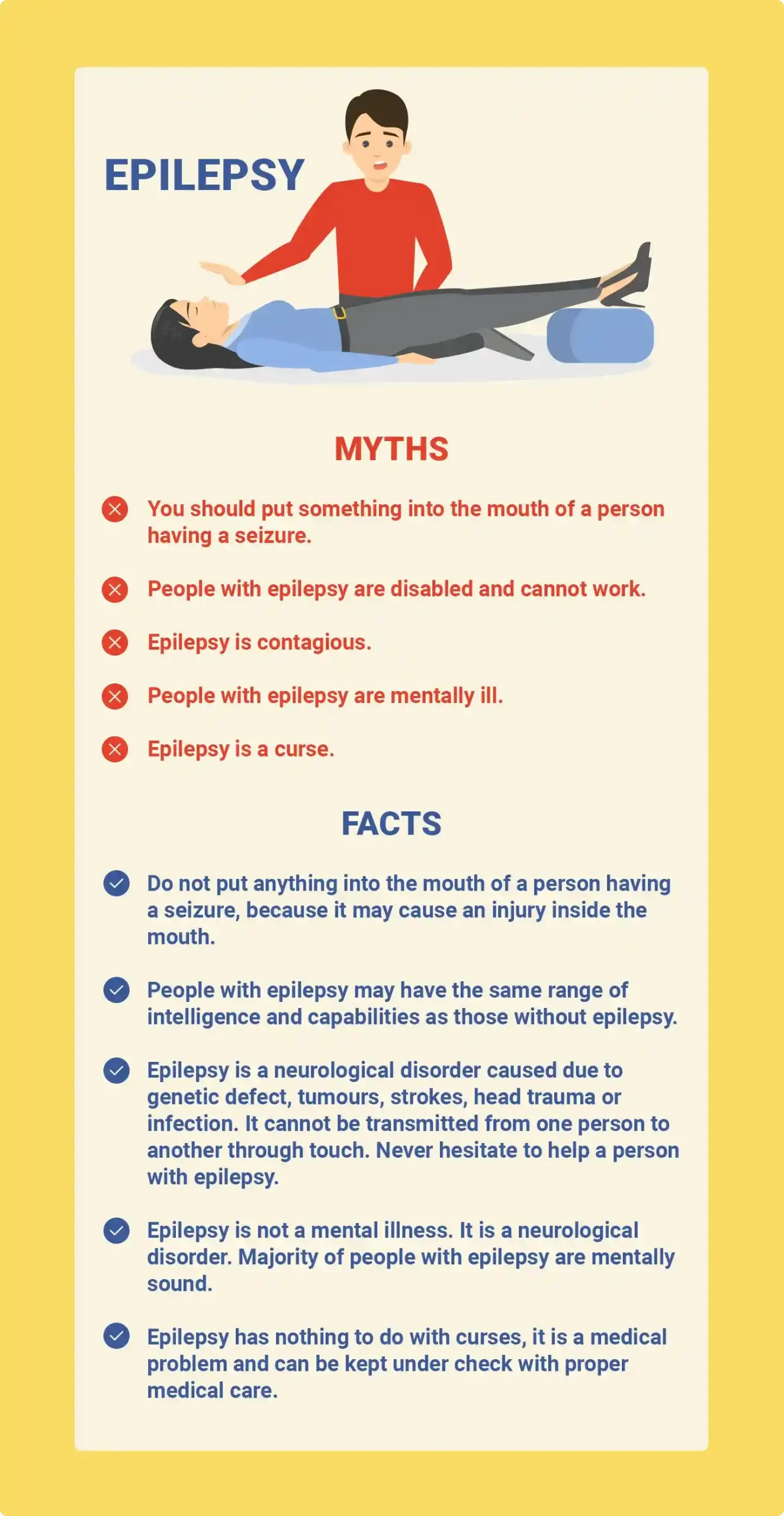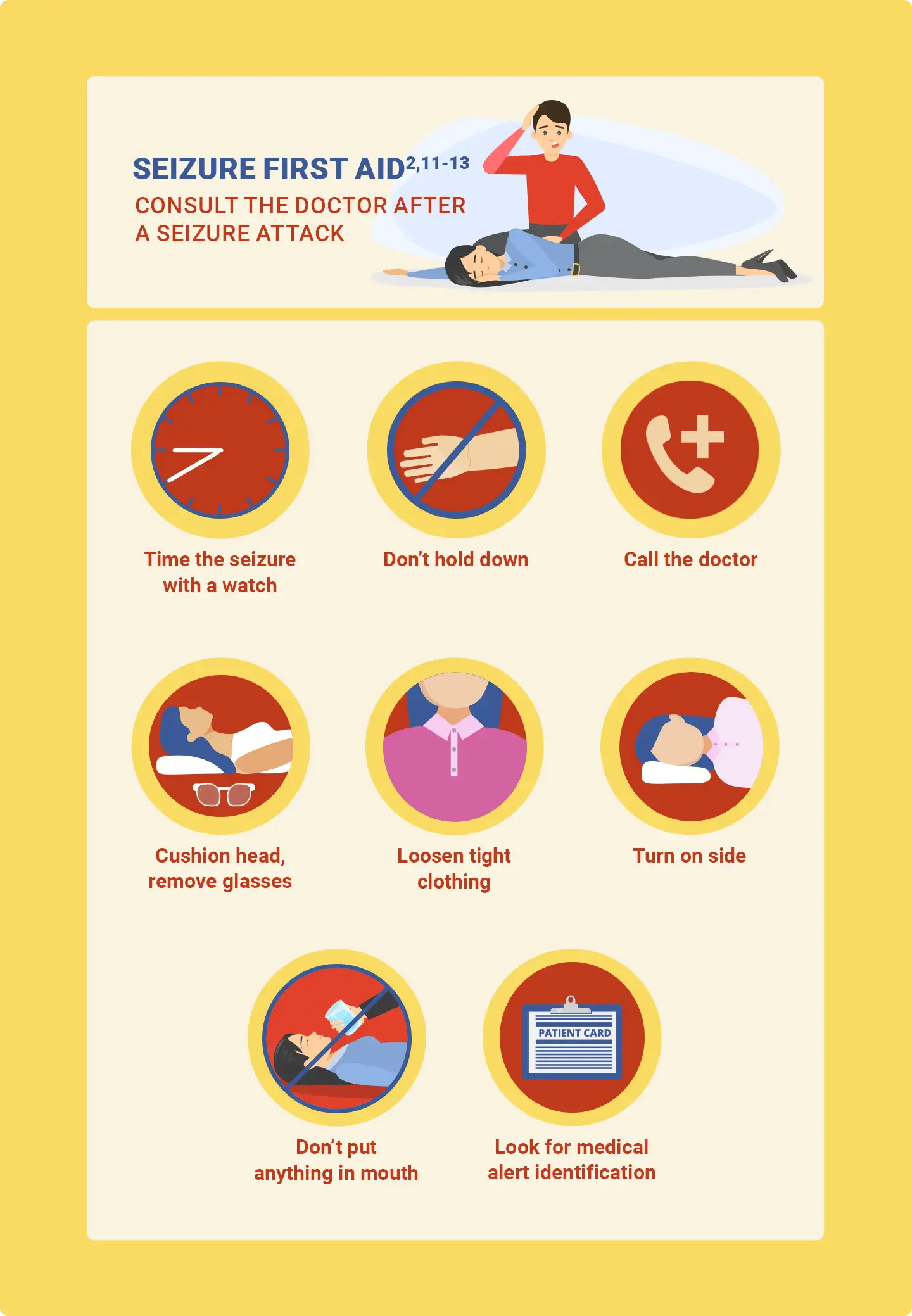Epilepsy
4 min read
Seizure Control: Understanding Epilepsy
Epilepsy is a chronic illness that results in recurrent seizures as a result of unusual electrical impulses sent by damaged brain cells. A seizure is brought on by an uncontrolled electrical surge within brain cells.1
Changes in awareness, muscle control (your muscles may twitch or jerk), sensations, emotions, and behavior can all occur during seizures.1
Another name for epilepsy is seizure disorder.1
Types of Seizures2
- Focal seizures: They are those that appear to be caused by activity in a single region of the brain. There is change in the level of awareness but without loss of consciousness
- Generalized seizures: They appear to affect all parts of the brain
Causes2
- Family history
- Brain damage
- Infections
- Injury before birth
- Developmental disorders (attention-deficit/hyperactivity disorder [ADHD])
Signs and Symptoms1
- Temporary loss of consciousness or awareness
- Muscle jerking, loss of tone, and uncontrolled muscle action
- "Staring into space" or a blank stare
- Temporary disorientation, poor thinking, and understanding issues
- Alterations in taste, smell, hearing, vision, or sensations of tingling or numbness
- Difficulty understanding or speaking
- Goosebumps, waves of heat or cold, and an upset stomach
- Lip-smacking, chewing actions, hand and finger rubbing
- Increased breathing or heart rate
Myths and Misconceptions Related to Epilepsy3-7



Show References










